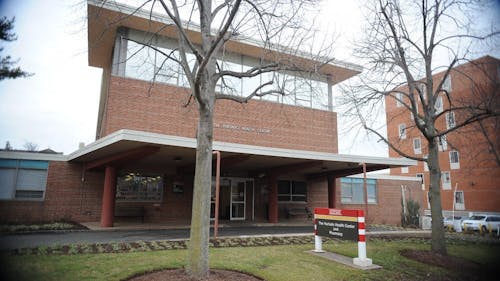NJ meningitis B bill advances, requires vaccination for on-campus students at Rutgers

A bill progressing in the New Jersey State Legislature would require Rutgers students living on campus to receive meningitis B vaccinations.
Following multiple cases of the bacterial infection at Rutgers in 2016, the University began offering vaccinations and prevention methods specific to the outbreak, as reported by The Daily Targum. In October 2016, Rutgers had administered 21,571 doses of the meningitis B vaccine to students and approximately 3,000 students sent in forms declining to receive the vaccine at that time.
While the University has required residential students to receive vaccinations for meningitis A, C, Y and W after the age of 16, meningitis B vaccinations were approved in 2014 and not mandated. Assembly Bill 1991 could change that.
The Assembly Health and Senior Services Committee approved the bipartisan legislation yesterday, which would revise requirements for residential students at four-year colleges to receive immunization against meningococcal disease to comply with recommendations of the Advisory Committee on Immunization Practices of the Centers for Disease Control and Prevention (CDC), according to the bill’s text.
It cited recent outbreaks of serogroup B meningococcal disease at both Princeton University and Rutgers and stated the 2014 introduction of meningitis B vaccines and revised recommendations will help address future outbreaks and increase immunizations at colleges across the state.
Assemblywoman Shavonda E. Sumter (D-35) sponsored the legislation that now awaits further votes in the legislature.
"This bill would create a proactive policy that mirrors the CDC's recommendations to help prevent potential outbreaks in the future," she said. "In addition, this legislation may even reduce the severity or impact of illness that could create a public health crisis on a college or university campus if exposed."
At Rutgers, the 2016 outbreak hospitalized two students after they both acquired the same strain of meningitis B, according to the Targum.
No specific connection was found between the two students, but the deadly bacterial infection is spread through direct exchanges of saliva — meaning it is transmittable through kissing, sharing drinks, cosmetics or utensils that come into contact with a victim's mouth, Melodee Lasky, assistant vice chancellor for Health and Wellness, told the Targum at the time.
“This is an illness that students need to take seriously,” she said. “It is estimated that 1 in 10 people who contract the disease die within the first 24 hours.”
On average these cases have been on the decline, but in 2015 there were approximately 375 reported incidents of meningococcal disease. According to the CDC, 10 to 15 of 100 people infected with the disease die and 11 to 19 of every 100 survivors have long-term disabilities, such as loss of limbs, deafness, nervous system problems or brain damage.
The most widely used vaccines for meningitis B are Trumenba and Bexsero, the Targum reported. Students can access the vaccines both on campus at the Hurtado Health Center and at various off-campus locations.
Both vaccines require a series of two or three doses, taken a few months apart. Lasky told the Targum that a common issue is lack of compliance after the initial dose.
The National Meningitis Association reported that less than one-third of first dose recipients go on to receive the recommended follow-up doses.
“If students think they’re safe because enough of the rest of the students have been vaccinated, that’s not the case,” Lasky said at the time. “The vaccine only protects the person who receives the vaccine.”



